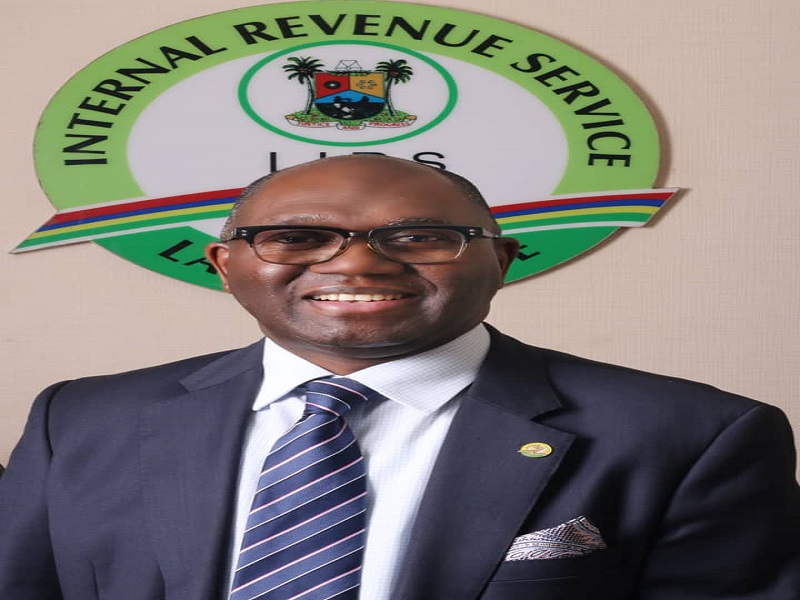News
NIPOST to Crack Down on Criminal Courier Operators

Nigerian Postal Service (NIPOST) has vowed to clamp down on courier companies found to be aiding the trafficking of drugs and other illicit items through the country’s logistics network.

In a statement issued on by Franklin Alao, director of Corporate Communications, NIPOST expressed outrage over a recent report in some newspapers with the headline: “Nigerian courier services easily transporting hard drugs since Tinubu became president – NIPOST.”
The agency described the headline as false, misleading, and damaging to national security efforts. According to NIPOST, the article falsely attributes the claim to the postal regulator, thereby creating the impression that the agency had endorsed or confirmed such allegations.
“This is categorically FALSE,” the statement said. “At no point has NIPOST made such a statement or associated these activities with the administration of President Bola Ahmed Tinubu.”
NIPOST maintained that while it respects the role of the media in promoting accountability and transparency, the publication in question was reckless and sensational.
It warned that inaccurate reporting on sensitive national issues like drug trafficking not only misinforms the public but also undermines the collaborative work being done to sanitise the courier and logistics sector.
Restating its position, the agency said it strongly condemns the use of courier services for criminal purposes, including drug trafficking.
It reaffirmed its zero-tolerance policy toward the misuse of Nigeria’s postal infrastructure and said it remained committed to regulating the sector with integrity, transparency, and accountability.
NIPOST noted that it had embarked on a range of interventions aimed at improving surveillance and enforcement across the logistics industry.
It stated that all courier operators are currently undergoing a revalidation process and that Know-Your-Customer protocols and compliance audits are being enforced to tighten controls and prevent abuse of the system.
The postal regulator said it is also working closely with the National Drug Law Enforcement Agency, the Nigeria Police Force, the Nigerian Customs Service, and other relevant security institutions to investigate and deter the use of logistics channels for the transportation of narcotics and other contraband items.
In addition, NIPOST said it had intensified engagement with courier operators, transport unions, and logistics associations to promote sector-wide vigilance and encourage the reporting of suspicious packages.
It also revealed that a new Digital Postcode and Parcel Identification System is being deployed nationwide to enhance traceability, eliminate anonymity, and improve parcel screening from the point of dispatch to final delivery.
“The Nigerian Postal Service is fully committed to restoring the integrity of Nigeria’s courier and logistics industry,” the statement said. “Any operator found to be involved in criminal activity will face immediate regulatory sanctions, including license suspension or revocation, and be reported to appropriate authorities for prosecution.”
The agency urged members of the public to use only licensed courier companies and to report any suspicious activity either to NIPOST or relevant security agencies.
It also called on journalists and civil society groups to approach issues in the sector with accuracy, caution, and a shared sense of responsibility.
News
Stanley Amandi, Nollywood Actor Arrested over Alleged Coup Plot against Tinubu

Stanley Amandi, veteran Nollywood actor and filmmaker, has been arrested by the Nigerian military over his alleged role in a foiled coup plot to overthrow President Bola Tinubu’s government, according to an exclusive report by Premium Times.

Stanley Amandi, Nollywood Actor
The filmmaker, also a former chairman of the Actors Guild of Nigeria (AGN) Enugu State chapter, was reportedly detained in September 2025 alongside several military officers accused of planning a violent overthrow, including potential assassinations of top officials, according to the newspaper’s sources.
Reports indicated that the coup plotters planned to wholesale assassination of top government officials including President Tinubu, Vice President Kashim Shettima, Senate President Godswill Akpabio, and Speaker of the House of Representatives Tajudeen Abbas, among others.
On Monday, the Defence Headquarters confirmed the plan to illegally oust the Tinubu administration, saying the indicted officers will be arraigned before military judicial panels.
In its statement, the Defence Headquarters said the investigation has been completed and forwarded to “appropriate superior authority in line with extant regulations.”
According to the military, the investigation was “comprehensive” and conducted in line with established procedures, examining “all circumstances surrounding the conduct of the affected personnel.”
The military disclosed that the findings identified “a number of the officers with allegations of plotting to overthrow the government,” describing such conduct as “inconsistent with the ethics, values and professional standards required of members of the Armed Forces of Nigeria.”
Mr Amandi has featured in many Nollywood movies and is known for his work as an actor, production manager and director.
His notable works include “The Album,” where he served as director; “Tiger King,” where he also served as director and produced in 2008; “Cornerstone,” produced in 2019; and “Once Upon a Dream,” in which he appeared as an actor in 2024.
Mr Amandi’s last Instagram post was on 19 September 2025, shortly before his arrest.
News
Firms Commit to Boost African Robotics Market

AfricAI and Micropolis Robotics have signed a multi-year exclusive distribution and deployment agreement, which marks one of the continent’s most significant robotics market entries.

Micropolis AI Robotics is a United Arab Emirates-based robotics manufacturer operating in autonomous systems, while AfricAI is a company building practical, revenue-driven artificial intelligence (AI) systems for African businesses, governments, and global partners operating in emerging markets.
According to the agreement, Micropolis Robotics named AfricAI as its exclusive continental partner, prohibiting direct sales, alternative distributors, and third-party agents from operating in the territory.
The partnership establishes AfricAI as the primary execution, localisation, and go-to-market platform for intelligent robotics in Africa’s industrial, security, logistics, and infrastructure sectors.
AfricAI said this exclusive mandate positions the company as the gateway for advanced autonomous systems entering African markets, ensuring regulatory compliance, local capacity building, and sovereign control over deployment frameworks.
The partnership, according to the two parties, moves beyond software- based AI into the realm of physical AI — intelligent machines capable of operating in complex, real-world African environments.
“This is not a collaboration, it is a market-shaping mandate,” said Fareed Aljawhari, CEO of Micropolis Robotics. “AfricAI now represents the exclusive gateway through which Micropolis technologies enter Africa. Their sovereign AI vision, operational reach, and regulatory fluency make them the only partner capable of executing at a continental scale.
Furthermore, the agreement enables AfricAI to integrate Micropolis’ autonomous robotics systems with AfricAI’s sovereign AI stack, resulting in AI-powered security and surveillance platforms, robotics-enabled logistics and port operations, industrial automation, smart infrastructure, and municipal robotics tailored to African operating conditions.
Initial deployments will commence in security, smart infrastructure, and logistics, with phased expansion across multiple African states as part of AfricAI’s broader continental AI, data, and intelligent infrastructure strategy.
The agreement also includes long-term performance-linked expansion rights, automatic renewals, and a defined localisation framework to support robotics deployment, workforce training, and skills transfer across Africa.
Prince Malik Ado-Ibrahim, executive chairman of AfricAI, said: “Africa does not need imported automation — it needs sovereign, context-aware intelligent systems. This exclusive mandate allows AfricAI to industrialise robotics deployment at scale while retaining control, compliance, and value creation on the continent.”
News
Subair: LIRS Won’t Raid Accounts – Unless You’ve Lost Every Court Battle

Lagos State Internal Revenue Service Executive Chairman Ayodele Subair Tuesday demolished online panic over alleged bank account raids, insisting the agency’s “Power of Substitution” targets only hardcore tax dodgers who have exhausted every appeal from tribunals to the Supreme Court over half a decade of disputes.

Ayodele Subair
Subair, speaking on Arise TV, shredded viral fears that LIRS would swoop on residents’ savings without warning, clarifying the mechanism under Section 60 of the Nigeria Tax Administration Act 2025 kicks in solely after assessments spark objections, reconciliations, demand notices, and a gruelling courtroom odyssey through High Court, Court of Appeal, and apex rulings.
The LIRS weekend notice had ignited fury by announcing enforcement via third parties – banks, employers, tenants, debtors – to claw back unpaid Personal Income Tax, Capital Gains Tax, Stamp Duties, and Withholding Tax from chronic defaulters holding funds or owing money to them, whether due now or accruing later.
Subair likened the process to a “long timeframe, not less than five years,” where recalcitrant bigwigs who stonewall every step become fair game, with LIRS directing agents like customers or partners to divert payments straight to the taxman in lawful settlement.
Far from arbitrary grabs, the chairman stressed it’s a final resort for “entirely recalcitrant” holdouts who ignore Notice of Refusal to Amend (NORA) and every olive branch, ensuring Lagos coffers snag rightful revenue fuelling the state’s bulging budget without shotgun raids on compliant payers.
As social media buzzes with defiance – “They can’t touch my account!” – Subair’s blueprint spotlights Nigeria’s tax evasion scourge starving subnationals of trillions yearly, with Lagos alone chasing billions in arrears amid federal revenue wars and economic headwinds squeezing the commercial capital’s 25 million souls.
Industry voices nod to the legality but plead for digital dashboards tracking disputes transparently, warning overzealous recovery could spook investors in Africa’s fintech and startup mecca already reeling from naira nosedives and grid glitches.
With LIRS poised to unleash the hammer on vetted violators, Subair’s clarion call aims to separate myth from muscle, bolstering Lagos’ IGR juggernaut that hit N815 billion last year while daring defaulters to test the full judicial gauntlet before crying foul.

 Telecom2 days ago
Telecom2 days agoPolice Bust ₦7.7bn Telecom Hack Gang, Seize 400 Laptops in Massive Fraud Swoop

 E-Financial3 days ago
E-Financial3 days agoPayPal Goes Live in Nigeria through Paga

 General News2 days ago
General News2 days agoNaira Smashes Through ₦1,400 Barrier in Official FX Rally

 Broadcasting3 days ago
Broadcasting3 days agoNITDA, NBC Explore Strategic Collaboration on Digital Transformation, Media Regulation

 General News2 days ago
General News2 days agoNCC Slaps ₦250,000 Fee on Trial Licences to Spur Telecom Innovation

 General News3 days ago
General News3 days agoFacebook Powers Connection, Creativity at African Creators Summit 2026

 E-Business3 days ago
E-Business3 days agoGold Hits Record $5,110/Ounce Amid Trump Tariff Threats, Geopolitical Fears

 Telecom3 days ago
Telecom3 days agoTikTok, Instagram Blamed in US Youth Suicide Lawsuit



























